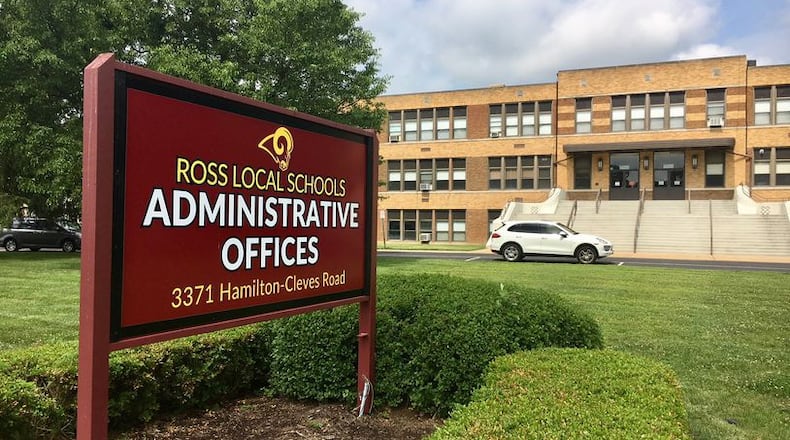Ross voters will soon be deciding on a proposed 5-year, 9.44-mill emergency property tax increase, which is on the May 2 ballot. If approved, the new tax would increase the annual school tax for the owner of a $100,000 home by $330.
The school system, which after two consecutive tax levy defeats last year has fallen into the “fiscal caution” stage as determined by the state, is facing the prospect of slicing millions of dollars in employee and student programs for the next two school years should voters again reject a proposed property tax increase.
“We requested the audit due to our financial situation,” Ross Superintendent Chad Konkle said.
Among the Ohio Auditor’s major budget cutting recommendations in its report released Thursday was the elimination of four teaching positions, two art teachers, 1.5 student counselor positions, one curriculum specialist and half of a library staff position.
Moreover, one central office administrator and one school building administrator’s position are also recommended for elimination.
These suggested budget cuts, combined with contracting for cheaper employee healthcare costs and reducing food service staffing daily, total hourly pay would accumulate to about $2 million a year in annual savings in the district’s yearly $28 million operating budget, according to the audit.
But state auditors cautioned these “tier I” recommendations done alone will not return Ross Schools to solvency.
“The district’s current financial condition is such that implementation of these Tier I recommendations would not resolve the projected deficit fund balance in the most recent five-year (operating budget) forecast,” wrote auditor officials.
In echoing state auditors, Ross officials have previously stated numerous times only the approval of additional local tax revenue will allow the district to escape further sinking into more invasive state control, which would entail state officials — not local school leaders — deciding on future, deeper personnel and program cuts.
Last year, Ross cut $1.8 million from its budget in trying to cover its projected financial shortfalls.
Student athletic and other extracurricular fees have jumped from $150 in the 2021-2022 school year to $825 this school year.
Other financial reductions for next school year may include reduced busing and elimination of art, music and physical education classes as well as advance college placement courses, if voters again reject a tax hike, school officials have said.
In a March 9 letter from Konkle thanking Ohio Auditor Keith Faber for the performance audit, the superintendent stated: “The audit will provide us with a template for future decisions that impact our school district and community.”
“This (audit) process is providing our district with a third party, objective perspective of our operations and finances,” he wrote.
Konkle — and other Ross officials — declined to comment on the just-released audit but he said it will be part of a public presentation during the April 12 Ross Board of Education work session meeting to be held at 6 p.m. at Ross High School.
About the Author

